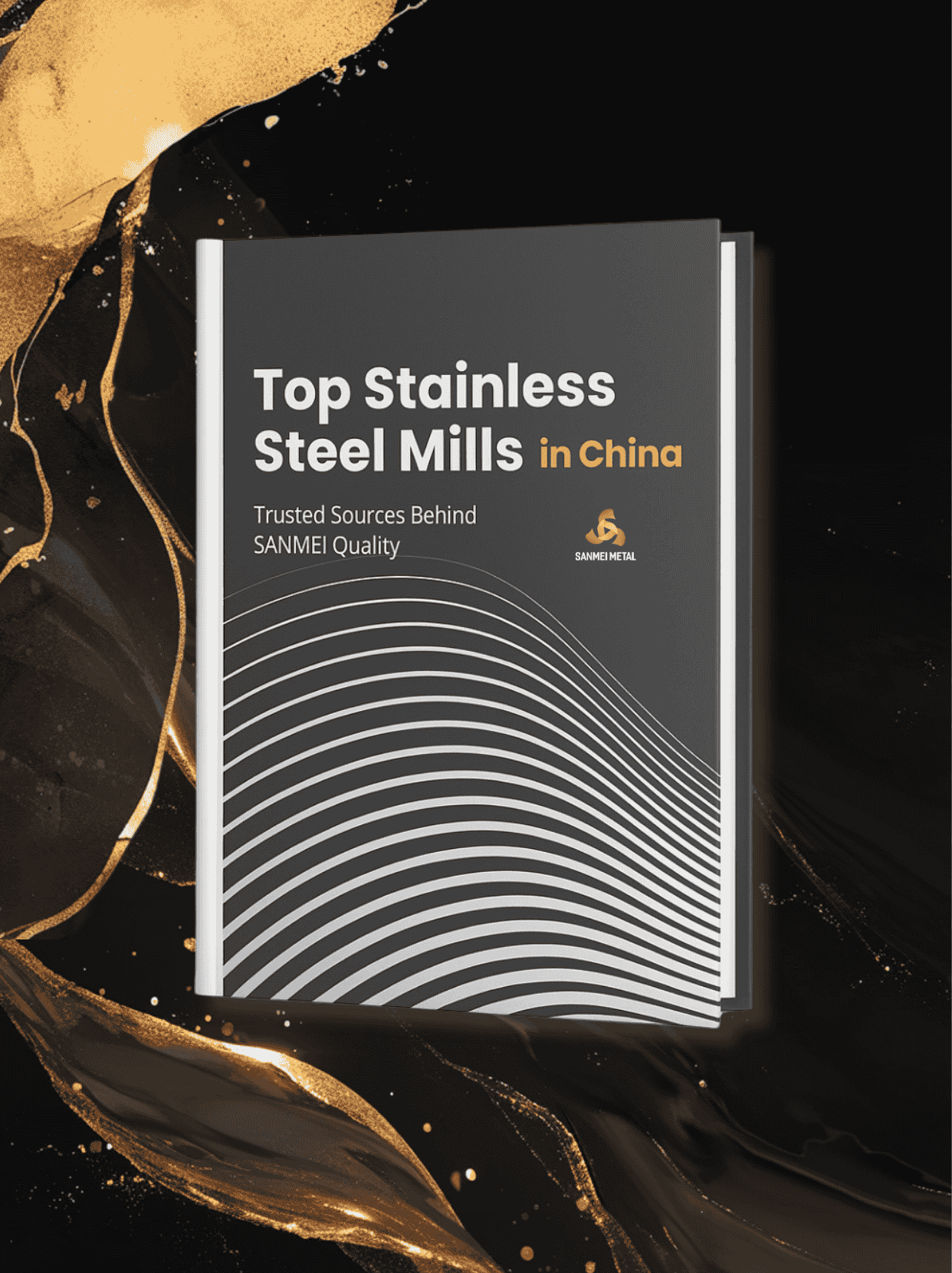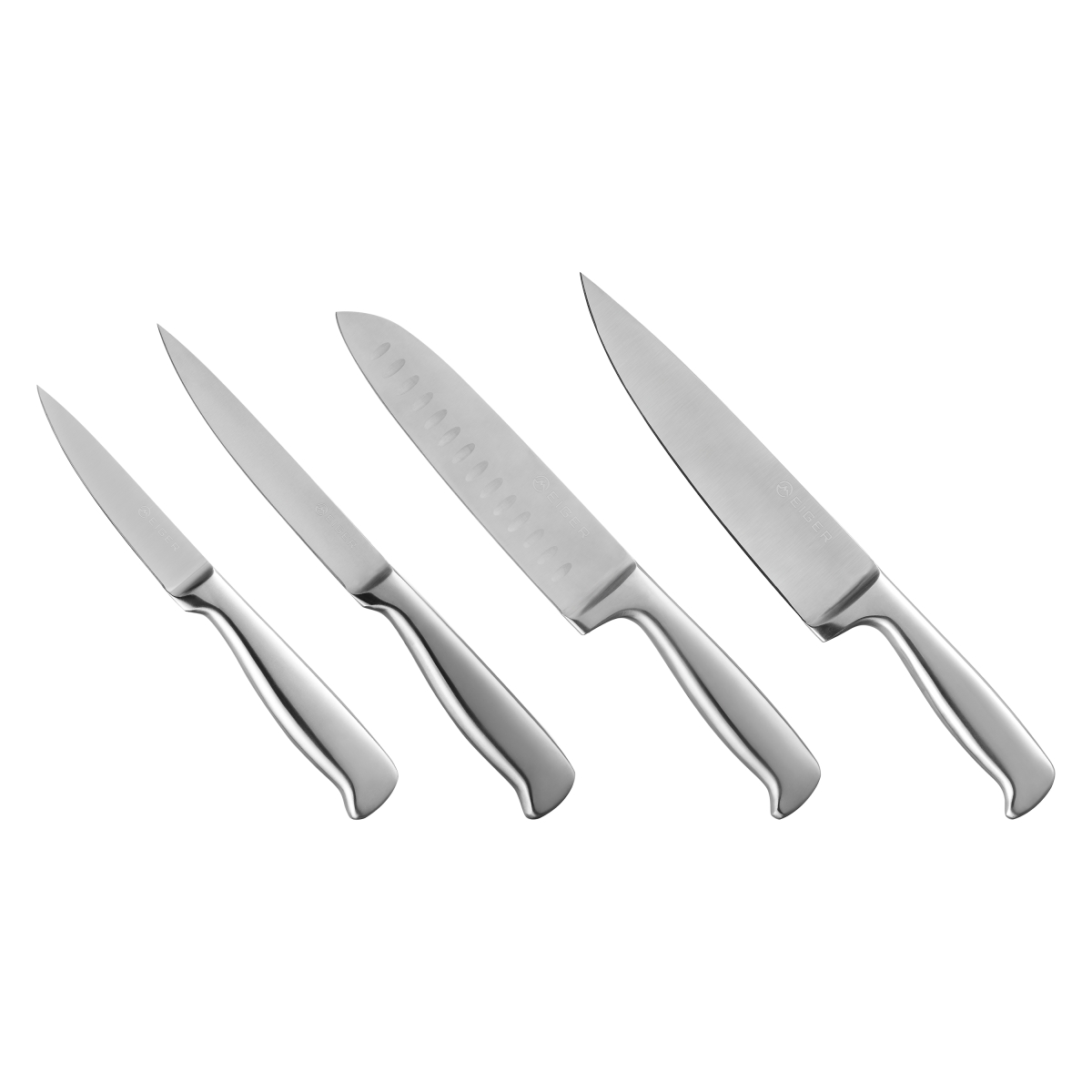
Hol dir deins FREI Zugang: Chinas #1-Stahlwerksdossier
Käuferorientiert: Passende Walzwerke nach Güteklasse/Oberflächenbearbeitung/Breite-Dicke/Anwendung
BAOWUTsingshanLiscoTisco
Details und Beispiele ansehen →


Ausgezeichnete Korrosionsbeständigkeit um eine Kontamination zu verhindern

Nichtreaktivität mit sauren, salzigen oder scharfen Speisen

Glatte, reinigungsfreundliche Oberfläche für Hygienestandards

Hochtemperaturbeständigkeit für Kochumgebungen
Kochgeräte aus Edelstahl wie Töpfe, Toaster und Grills sollten in erster Linie ungiftig und lebensmittelecht sein. Darüber hinaus sind Leistungsfaktoren wie Korrosionsbeständigkeit, Hochtemperaturbeständigkeit und einfache Reinigung und Wartung für hochwertiges Küchengeschirr entscheidend.
Die Edelstahlsorten 304, 304L, 316, 316L, 321, 309S und 310S sind für ihre hervorragende Leistung in Umgebungen mit hohen Temperaturen und ihre Rostbeständigkeit bekannt, was sie ideal für die Herstellung verschiedener Kochgeräte macht.
Küchenmöbel und -geräte aus Edelstahl müssen nicht nur Anforderungen an Korrosionsbeständigkeit und hohe Festigkeit erfüllen, sondern auch als Ausstellungsmöbel ästhetisch ansprechend sein. Darüber hinaus sind einfache Reinigung und Wartung in der fetthaltigen Küchenumgebung unerlässlich.
Die Edelstahlsorten 304, 304L, 409, 430, 2205, 2207, 436, 439 und 441 verfügen über eine ausgezeichnete Korrosionsbeständigkeit und mechanische Eigenschaften und behalten ihr attraktives Aussehen, sodass sie sich für die Herstellung von Küchenmöbeln und -geräten eignen.
Edelstahl, der in Lebensmittelbehältern und -utensilien verwendet wird, darf nicht mit Lebensmitteln reagieren. Darüber hinaus müssen diese Behälter aufgrund von Zusatzstoffen in einigen Lebensmitteln eine hohe Korrosionsbeständigkeit aufweisen. Auch die einfache Reinigung ist ein wesentlicher Vorteil dieser Materialien.
Edelstahl für Besteck und Trinkgeschirr muss eine gute Härte und Verschleißfestigkeit aufweisen, insbesondere für Messer, bei denen hohe Härte und Festigkeit unabdingbar sind. Für moderne Verbraucher sind Besteck und Trinkgeschirr nicht nur Behälter, sondern auch dekorative Gegenstände, die den ästhetischen Reiz ihrer Sammlung steigern.
| Grad | Hauptfunktionen und Anwendung |
|---|---|
| Serie 201 (J1~J4) | Kostengünstige Behälter für den kurzfristigen Lebensmittelkontakt |
| 304 / 304L | Industriestandard für den Einsatz in Lebensmitteln, korrosions- und hitzebeständig |
| 316 / 316L | Hohe Leistung für die Verarbeitung von sauren, salzigen Speisen und Meeresfrüchten |
| 321 / 309S / 310S | Hohe Temperaturbeständigkeit, perfekt für Industrieöfen und Grills |
| 409L / 410 / 410S | Langlebig, verschleißfest, ideal für Messer und Besteck |
| 420J1 / 420J2 | Hohe Härte für Schneidwerkzeuge und Utensilien |
| 430 / 436 / 439 / 441 | Gute Formbarkeit und Kosteneffizienz, weit verbreitet in privaten Küchen |
| 2205 / 2207 | Duplexstähle für raue Verarbeitungsumgebungen, ausgezeichnete Festigkeit und Korrosionsbeständigkeit |
Bei SANMEI bieten wir zertifizierten Edelstahl in Lebensmittelqualität sowohl in Rollen- als auch in Blechform mit Oberflächenveredelungen wie 2B, BA, Nr. 4, HL und Hochglanzpolitur an – ideal für Küchengeräte, Haushaltsgeräte und Lebensmittelverarbeitungslinien.
Aber woher weiß man, ob das, was man kauft, wirklich lebensmittelecht ist? In Märkten wie China, wo die Materialstandards variieren, ist es wichtig, die Herkunft zu überprüfen. 👉 Ist der lebensmittelechte Edelstahl, den Sie in China kaufen, wirklich lebensmittelecht?
Lesen Sie unseren Leitfaden, um zu erfahren, worauf Sie achten müssen – und wie Sie den richtigen Anbieter auswählen.
Hauptsitz:
Creating Center, Nr. 142, Yuhe Road, Lecong Town, Shunde District, Foshan City, Guangdong Province, China. 528315
Fabrik: Logistikstadt Liyuan, Stadt Chencun, Bezirk Shunde, Stadt Foshan, Provinz Guangdong, China. 528313
Lokale Support-Basis in Australien: (Yatala, QLD) – Eröffnung 2026